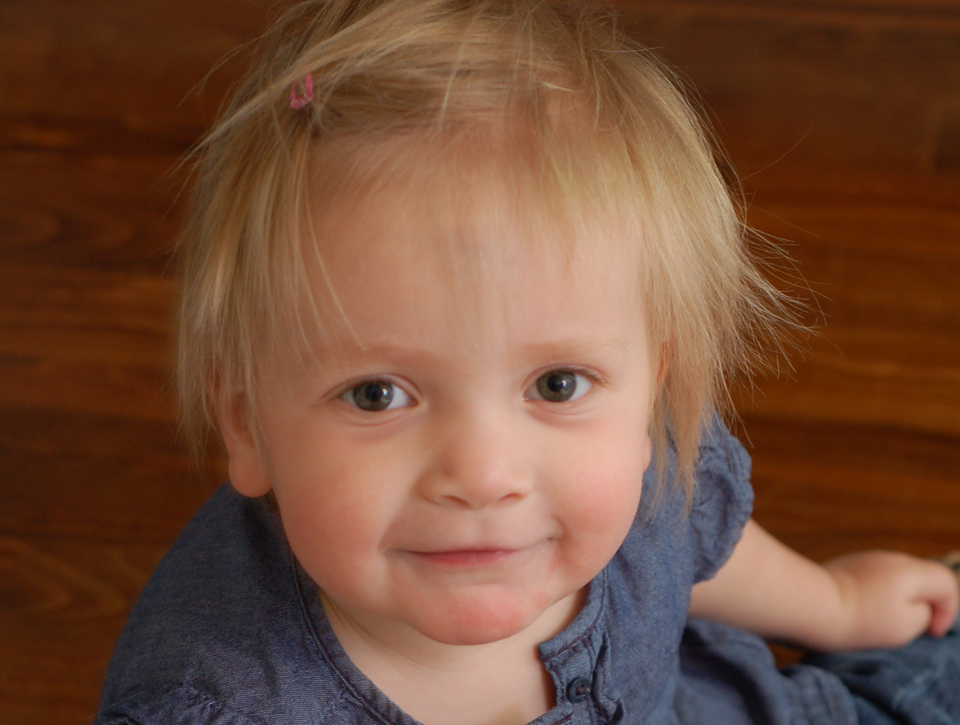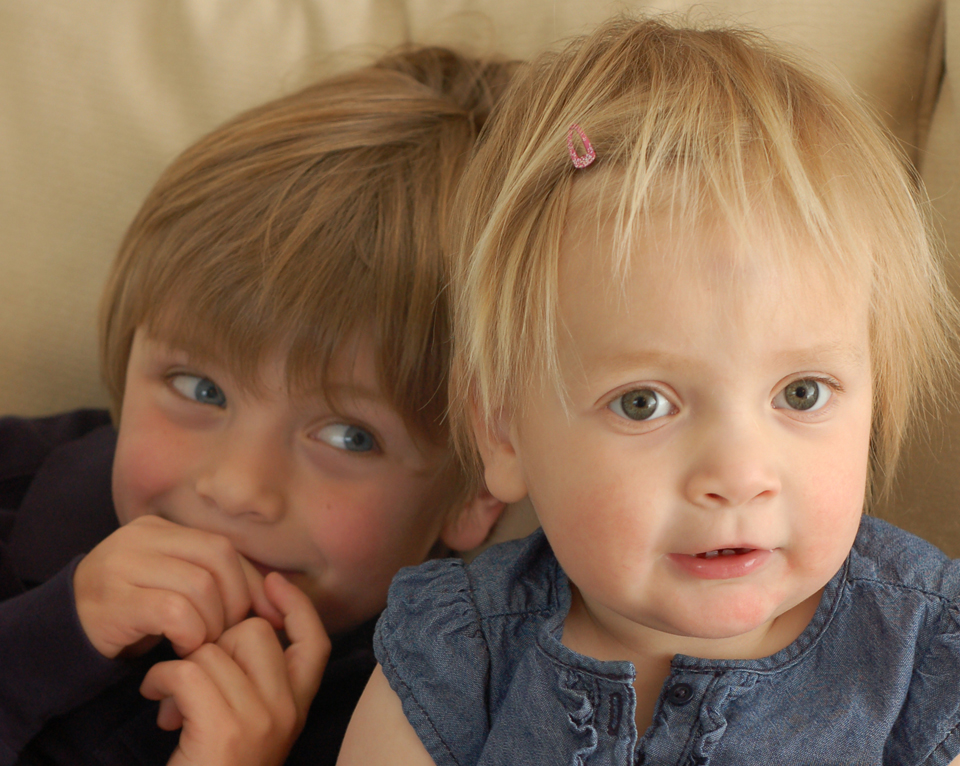Julie Drury, mother-medical advocate-superhero
Hear the latest podcast with this Kickass CanadianRecorded: December 6, 2016
“I’ve gotten some new perspective—on how important career and family are, what it means to cherish having a child who’s typical and what it means to have a child who’s not typical.”

Julie’s daughter, Kate Drury, passed away on November 30, 2015, at age eight. She spent her last days at home with family and friends, surrounded by love. Her light continues to shine in everyone she knew, especially her mother, her father Brian and her brother Jack. Farewell, sweet Kate. “Fight like a girl.” (To order the children’s book I wrote in Kate’s honour, and help raise money for the Children’s Hospital of Eastern Ontario, please visit Now That I’m Here.)
* * *
There are two sides to Julie (Smith) Drury. There’s Julie the mother, the nurturer, the gentle woman who empathizes deeply with others and feels pain. Then there’s her alter ego Smitty, a nickname she earned in childhood. Smitty is the tough, bold fighter who takes no prisoners and knows how to get the job done.
I met Smitty before I met Julie. She was a veteran on my first competitive women’s ultimate Frisbee team and instantly earned my respect with her hardcore, fearless play and fierce work ethic. It was only after she’d stopped playing and become a mother that I got to know Julie.
Everyone has different aspects to their personality. We can all relate to having a softer, vulnerable side, and one that tends to get more agro or at least wears a thicker skin. Both sides are necessary and can bring positives as well as negatives to our lives. But Julie Drury has more need than most of us to cultivate both sides of her character…

A force to reckon with
Growing up in Charlottetown, Prince Edward Island, Smitty was the leader of her neighbourhood “gang”—a group of kids living in nearby subdivisions that shared a passion for activity and the outdoors. “We had free reign of fields and forests and ponds to play hockey on,” says Julie. “We had really good times.”
Her love of athletics led her to pursue a range of sports, including swimming, gymnastics, soccer, field hockey, running and eventually varsity basketball at the University of Ottawa. After graduating in 1996 with degrees in Human Kinetics and Exercise Physiology, she took up ultimate Frisbee, playing on the national championship team in 1998 and at the World Club Championships in Hawaii in 2002.
“When I first think of Smitty, (I think of) when I’m in the zone,” says Julie. “That’s when I’m competing or I’m pushing or I’m needing to be aggressive.”
Kate’s illness
These days, Smitty plays a more important role in Julie’s life. She’s someone Julie has come to rely on in her ordeal with her three-year-old daughter Kate. In her short life, Kate has suffered untold stress and pain due to a complex, undiagnosed medical condition.
When their daughter was born, Julie and her husband Brian had no reason to suspect anything was wrong. Their son Jack, now six years old, was a healthy boy, and the couple had always been careful about diet and exercise. And Kate seemed to be a normal little girl. But after a few months, her parents noticed she wasn’t hitting the same milestones as other children her age.

Beautiful Kate; Photo: Amanda Sage
Then, Kate started getting sick. When she first presented with what her parents would soon learn to call her “episodes”—involving vomiting, intermittent fever, extreme lethargy, and cessation of eating and drinking—her pediatrician thought she had the flu or pneumonia. But by the fourth episode, in November 2009, doctors started taking notice.
“They recognized that we kept coming in,” says Julie. “So, they did some blood work, and we started on what became a slippery slope of (being seen by) umpteen specialists.”
From that point on, news about Kate’s condition only got worse. Born a hearing child, it was confirmed in February 2010 that Kate had gradually become deaf over the first two years of her life. Julie and Brian hoped to get her cochlear implants, a device that involves an electrical wire inserted into the cochlea, bypassing the damaged or missing hair cells to directly stimulate the auditory nerve. “But that wasn’t a reality,” says Julie.
The fight of her life
Before proceeding with the implants, Kate had to undergo a general anesthetic so that the doctors could conduct a series of tests. The examination seemed to go well. But less than an hour after Julie and Kate got home from the Children’s Hospital of Eastern Ontario (CHEO), things took a sharp turn for the worst.
“I fed her some lunch… and I honestly turned my back to her for a moment to get her bottle,” says Julie. “When I looked back, she was grunting, having difficulty breathing.”
By the time Julie got Kate back to CHEO, her daughter was in severe respiratory distress. Kate’s room was flooded with medical workers, and Julie recalls the surreal experience of retreating to the periphery as if in slow motion and finding herself looking in from the doorway as doctors, nurses and EMTs took over.
“I was just watching and she didn’t even look like my kid,” says Julie. “She looked like a doll. She was grey and blue and limp, and then she started seizing… and I was in the hallway and I was jumping up and down completely panicked, just crying out for them to help her.
“When I recount it, I think that’s where Smitty takes over because I can recount it and just be calm. But if I go there, if I let my mind go there emotionally, it’s extremely upsetting—it’s probably one of the most traumatic things I’ve ever seen. Ever. You know, your own child having to be resuscitated, your own child dying in front of you.”
Finally, the medical team was able to bring Kate around. They weren’t sure what caused the episode. But they suspected it might have been in response to the general anesthetic, which meant that plans for Kate’s cochlear implant surgery had to be put on hold.
It was after that hospital visit that Julie resigned herself to the fact that the doctors simply didn’t know what was wrong with her daughter, and that life for the Drury family was forever changed.
Finding a balance
But that doesn’t mean life has come to a standstill. Julie, or Smitty (or some wonderful combination of the two), does everything she can to stay positive and live as normal a life as possible.
For Julie herself, that means staying active. On the morning of our interview, she’d been up for a 6:00am run in spite of the heavy downfall after Ottawa’s first major snowstorm of the season. It wasn’t just an idle run. She’s training for the 2011 Boston Marathon in April, for which she ran a qualifying time in her debut marathon last December. (Hardly a surprise from the woman who once said, “If you can’t taste the lactic acid, you’re not working hard enough.”)
For her son, Jack, that means trying to maintain a regular schedule and ensure that he gets the attention he needs. At times, Julie relies on what she calls the “mom network,” a group of incredibly supportive women in the community who readily pitch in. “They take him for lunch, give him the hug he needs, they’ll pick him up from the school yard if I’m running late from CHEO.”
Jack’s parents also make an effort to include him in his sister’s life. He’s kept in the know about her condition, and visits her in the hospital when appropriate. “He loves his sister and he’s very supportive of her,” says Julie. “It’s probably going to get harder as he gets older. He has a sister he’s going to have to help take care of, and that’s not fair to him, but it’s the way it is. And he’s probably the best kid to do it.”

Jack and Kate; Photo: Amanda Sage
Staying together
What is more complicated for Julie is maintaining a healthy relationship with her husband, Brian, who owns and operates Fine Spaces Construction while she, having taken time away from a promising career as a Senior Policy Advisor at Health Canada, stays home with Kate. Their daughter’s illness has presented more stressors than most couples ever have to face. But, says Julie, “we try to recognize the stress and minimize the distance it creates between us.”
One thing she is very clear on is the fact both she and her husband are determined to work through everything as a unit. She’s confident in the knowledge that neither one would ever abandon the other, particularly in a situation as trying as theirs. In spite of the extraordinary challenges Julie and Brian face, they’ve built a solid foundation over their 20 years together. “I met Brian at the University of Ottawa,” she says. “We went for dinner and it kind of went from there. After the first date, it just never really ended.”

The Drury family; Photo: Love Bunny Photography
Coordinating efforts
One positive development in Kate’s ordeal has been her admittance to CHEO’s Coordinated Complex Care program. The initiative was launched on March 31, 2010 in an attempt to reduce some of the burdens that complex medical conditions put on the current healthcare system. By coordinating multidisciplinary care for children like Kate, the hospital will save money, reduce admissions, ease the stress on families and make treatment safer.
Instead of facing a new doctor every time she’s admitted—one who hasn’t had time to review her long case file—Kate is now attended to by a regular team of specialists, including a pediatrician, and a family and nurse care coordinator. “Everyone’s talking on the same page,” says Julie. “Everyone knows what’s going on with this kid and there’s total coordination.” The program is still in the pilot phase, but Julie has high hopes that it will become permanent.
Hope for Kate
There are other signs of positive movement in Kate’s medical life. She was admitted to the Undiagnosed Disease Program at Washington’s National Institutes of Health (NIH), which will assess Kate remotely to try to determine her underlying condition. In addition, her doctors at CHEO are currently operating under the assumption that Kate has an undiagnosed case of mitochondrial disease, a condition in which genetic mutations cause the mitochondria to fail, leading to impaired cellular function throughout the body. By using mitochondrial disease as a working diagnosis, Kate’s medical team has a more concrete base from which to assess and treat her.
Not only that, but—miraculously—Kate was recently taken to CHEO for her first cochlear implant activation. After much medical consultation, Julie and Brian decided to proceed with bilateral cochlear implant surgery in November 2010 at the Hospital for Sick Children (SickKids) in Toronto. Leading pediatric cochlear implant surgeon Dr. Blake Papsin performed the operation, and Kate was treated with the best in anesthetic and post-operative care in order to mitigate any complications. The procedure went smoothly, and the activation “went perfectly.”
Later that day, Julie took Kate out for a ride on the toboggan. She was pulling her daughter along when she stopped in her tracks and turned back to glance over her shoulder. “(Kate) had a look on her face,” says Julie, “and I was thinking, ‘She’s hearing the snow crunch.’ And I just thought, this is the way it should be.”
Finding joy in new places
More than anything, Kate’s illness has taught Julie to relish the everyday moments and never take anything for granted. Their life is different than she imagined it would be, but there are many moments of joy and normalcy.
When I ask Julie if she still feels like herself, she says no. But she doesn’t see that as a negative. “I think I’m a variation of me,” she says. Julie references the film Sliding Doors, in which the main character experiences parallel versions of her life, each one based on whether or not she catches a train. “I feel like I’ve gone through a sliding door and the track that I was on has changed. Maybe I’ve gotten some new perspective—on how important career and family are, what it means to cherish having a child who’s typical and what it means to have a child who’s not typical.
“I’ve lost a little piece of myself and that sometimes makes me angry or sad. But I don’t think it’s really gone. I’m holding myself together with duct tape, and every now and then a little piece falls off and I just have to go and stick it back on.”
Smitty. Julie. The strongest woman I know.
* * *
For the latest on Julie, check out her blog, Searching for Solid Footing, follow @SolidFooting on Twitter or email [email protected]. To help support research into mitochondrial disease, please donate to MitoCanada.
 Kickass Canadians
Kickass Canadians
Thank you for writing this wonderful article about an extraordinary young woman.
We are among the many people hoping that answers and good things come to Smitty/Julie, Brian, Jack and Kate.
It’s my pleasure and honour. Thanks for the comment, Paula! I’m glad Julie has so many supporters.
Although I don’t know the Drurys directly, we share some of the same friends. I have known about their story for some time and get inspiration from them and all that they have been through. I too have a non-typical child and some days are harder to get through than others. When I have one of those days, I think of this amazing family and feel inspired to move on and address the issues facing me. Thanks for posting such a great article.
Robin, thank you for the comment. I’m really sorry to hear your child is in that situation. I hope things take a positive turn soon… If you live in the Ottawa area, maybe you can come out to a fundraiser I’m organizing on October 2, Kickass Talks for CARE. Julie will be one of the speakers, so you two can finally connect directly. Details are here: http://kickasscanadians.ca/kickass-talks-for-care. All the best to you and your family.
Just a short update on the beautiful article written by Amanda several months ago.
Over the past year I have been a member of Family Forum at the Children’s Hospital of Eastern Ontario (CHEO). Recently I have been asked to sit on the Executive for this committee which ‘fosters, promotes and supports the highest quality patient and family centred care at CHEO.’ I am honored and inspired to be on this committe and work with the committed staff and parents, as well Board of Directors, at CHEO on behalf of all families.
CHEO has asked me to speak at an upcoming conference of the Canadian Family Advisor Network (CFAN), part of the Canadian Association of Pediatric Health Care Centres annual conference. I will be speaking about our family’s story and experience, as well as profiling the incredibly important Coordination of Complex Care Program – which is still a pilot program at CHEO.
Kate’s medical journey continues. She has had a wonderful summer of sun and activity. Her many complex conditions continue to be monitored closely. Unfortunately our summer ended in a hospital admission in late August. Fortunately she is taken care of very well and with excellent efficiency with the support of her new team. Our family continues to work hard at making the best of each day and enjoying the good times.
Thank you for your interst in our story.
Julie
Julie, thanks so much for posting this update! I marvel at your ability to make the best of whatever you’re handed. CHEO is very lucky to have you – as is Kate 🙂
Hi everyone! Wow, what an amazing afternoon this past Sunday (October 2nd) at KickAss Talks for Care.
Some of you asked about what you could do re: the Coordination of Complex Care Program at the Children’s Hospital of Eastern Ontario (CHEO). Your support toward making this a permanent program, so that all children and their families in our region can benefit from it, would be very appreciated. Here is what you can do:
(1) Send a short letter, email, or phone your local MPP and tell them about this program and ask whether or not they support it (they should).
(2) Send a short letter, email, or phone the Champlain Local Health Integration Network (LHIN) and ask that they make this a permanent program at CHEO (they hold the purse strings).
(3) Consider supporting any CHEO charitable campaign where and when you can.
Lastly, send warm thoughts, prayers, good vibrations to all the little ones and their families who live with medical fragility and complex medical conditions and do so with dignity and courage.
Julie, Brian, Jack and Katie, I have been thinking about you guys a lot recently.
I just happened to read this, as Neil is another featured KAC.
Hope you are well.
All best wishes,
Barb and Neil